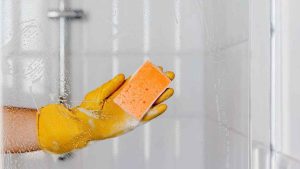Garage and basement floors often take a beating. They endure everything from heavy vehicles and machinery to moisture, spills, and temperature fluctuations. Choosing the right flooring material is crucial for durability, aesthetics, and functionality. This guide will explore the most popular options, weighing their pros and cons to help you make an informed decision.
Key Factors to Consider:
- Moisture Resistance: Basements are prone to dampness, and garages experience moisture from snow and rain. Your chosen flooring should be able to handle these conditions without warping or degrading.
- Durability: Consider the weight and type of activities your floors will endure. Heavy vehicles, tools, and machinery demand a more robust material.
- Maintenance: How much time and effort are you willing to invest in cleaning and upkeep? Some materials are virtually maintenance-free, while others require more attention.
- Aesthetics: While functionality is paramount, the appearance of your flooring can significantly impact your space’s overall look and feel.
- Budget: Flooring materials range widely in price. Set a realistic budget before you begin your research.
Popular Garage and Basement Flooring Options:
- Concrete: Often the default choice, concrete is durable and cost-effective. However, it’s prone to staining and can be cold and unforgiving. Options like epoxy coatings or polished concrete can improve its appearance and durability.
- Epoxy Coatings: Epoxy coatings transform ordinary concrete into a glossy, stain-resistant surface. They’re available in various colors and patterns, adding visual appeal to your garage or basement. However, they can be expensive and require professional installation for best results.
- Interlocking Tiles: These tiles are made from various materials like rubber, PVC, or composite. They are easy to install, offer excellent moisture resistance, and provide a comfortable walking surface. Interlocking tiles are also available in different colors and textures, allowing for customization.
- Vinyl Flooring: Vinyl flooring comes in sheets, tiles, or planks, offering versatility and ease of installation. It’s a budget-friendly option that resists moisture, stains, and scratches. However, vinyl can fade over time with exposure to sunlight.
- Painted Concrete: Painting concrete floors is a cost-effective way to improve their appearance and protect them from stains. However, paint can chip and peel over time, especially with heavy use.
- Rubber Flooring: Often used in gyms, rubber flooring provides excellent impact resistance and a cushioned surface. It’s durable, easy to clean, and comes in various colors and textures. Rubber flooring can be more expensive than other options.
- Tile (Ceramic or Porcelain): Tile offers a high-end look and excellent moisture resistance. However, it can be cold and hard underfoot and is more susceptible to cracking than other options.
Disadvantage of Basement Parking (Especially Relevant for Existing Knowledge):
If you’re considering finishing your basement and adding parking, be aware of a significant drawback: moisture. Basements, even those with vapor barriers, are naturally more humid than above-ground spaces. Parking vehicles in a basement introduces additional moisture through snow, rain, and road salt. This can lead to condensation, mold growth, and even structural issues if not properly managed. For more information about basement parking visit: https://healthyflat.com/basement-garage-advantages-disadvantages/.
To mitigate moisture problems, ensure adequate ventilation, use dehumidifiers, and choose flooring that excels in moisture resistance (like epoxy, interlocking tiles, or certain types of vinyl).
Conclusion:
The best garage or basement flooring for you depends on your specific needs and budget. Consider the factors discussed in this guide and weigh the pros and cons of each material. Don’t hesitate to consult with flooring professionals for expert advice and guidance. With careful consideration, you can select a flooring option that enhances the functionality and appearance of your garage or basement while standing up to the demands of everyday use. Winter home maintenance tips: How to prepare for winter and protect your flooring investment?





Average Rating